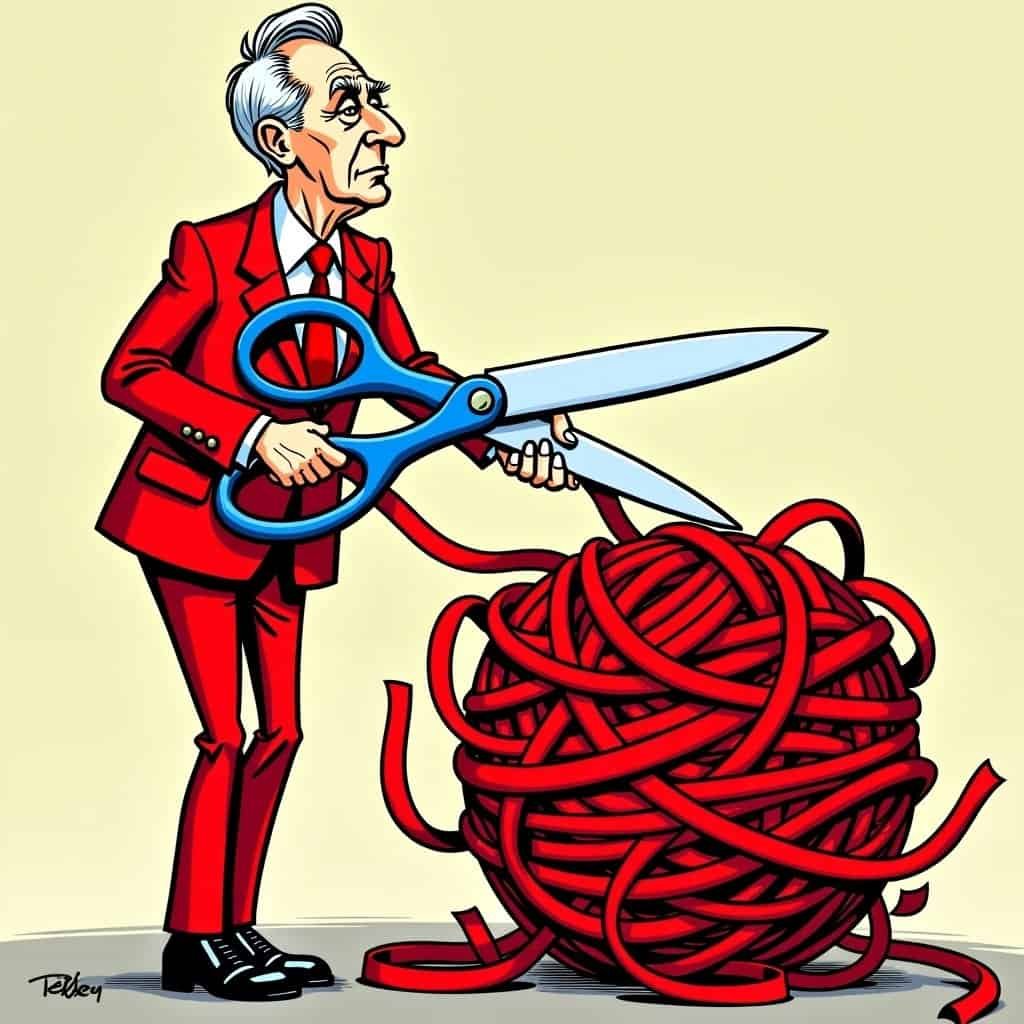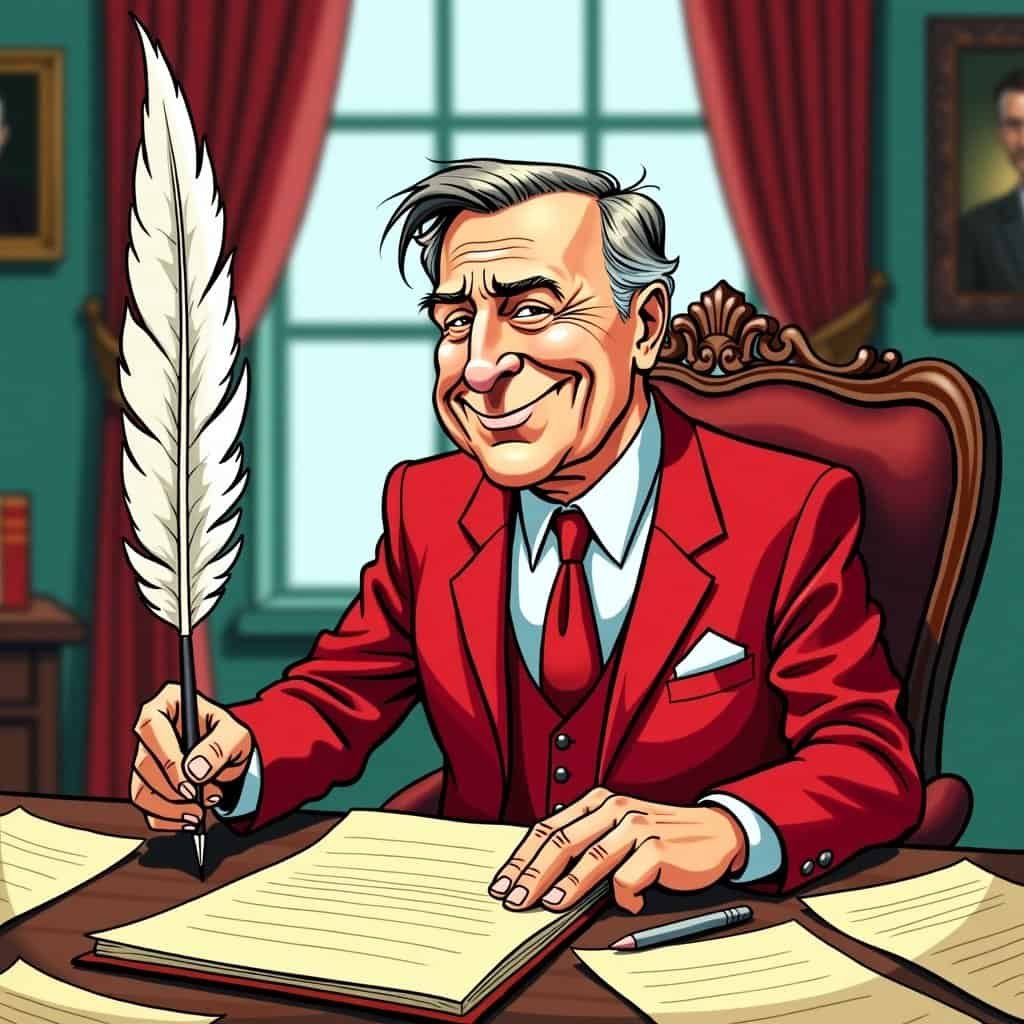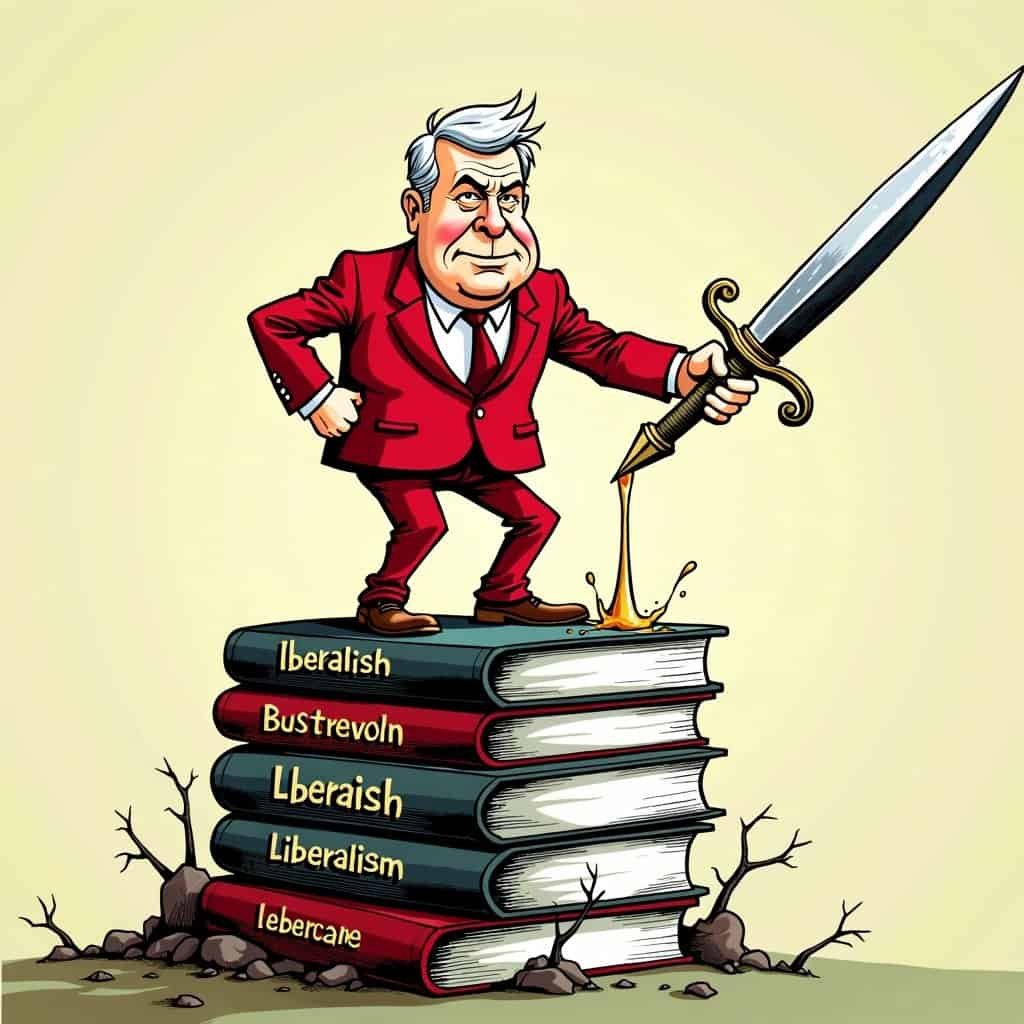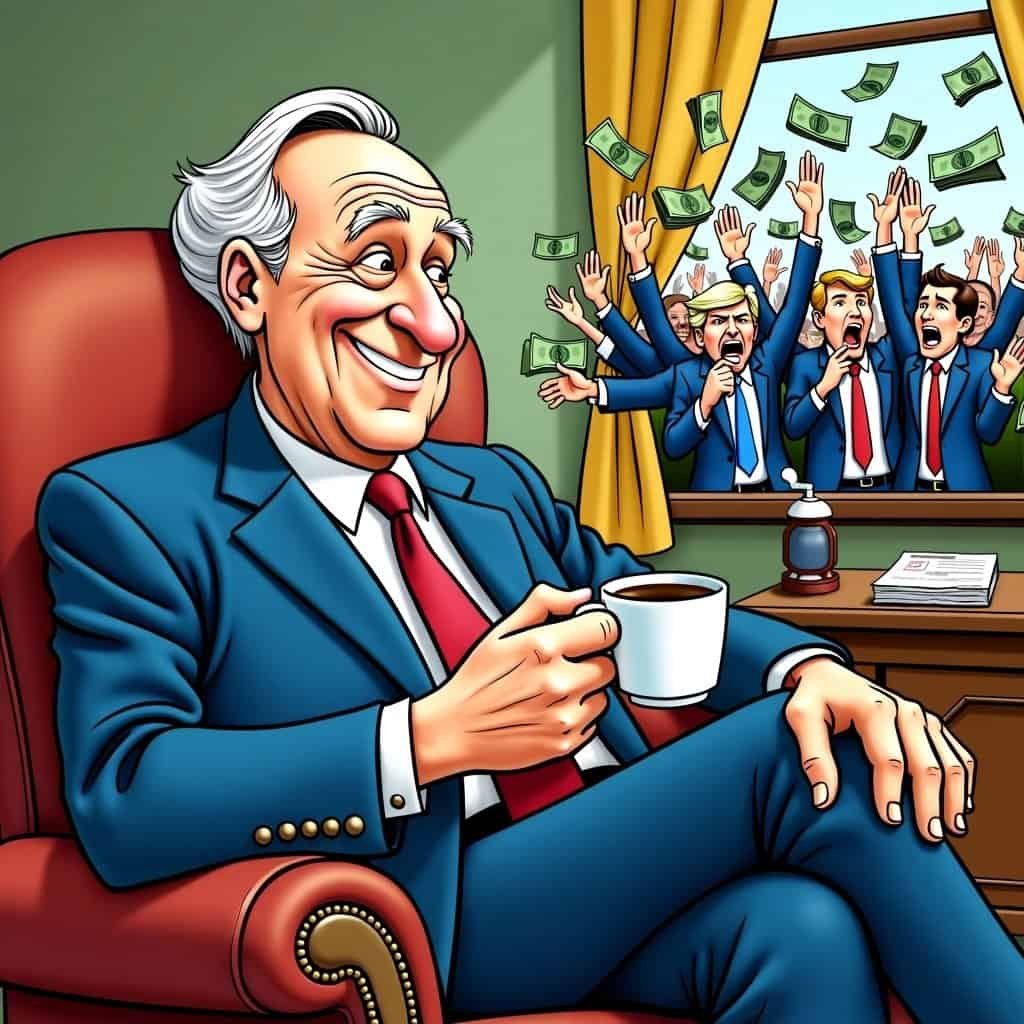Oh, William F. Buckley Jr. The man who could slip the word ‘sesquipedalian’ into casual conversation and make it seem charming. Buckley wasn’t your average conservative; he was a beacon for those who favored smaller government. Buckley believed in limited government with the same fervor some people have for their favorite sports team. He viewed a large federal government as a threat to personal freedom, and for Buckley, freedom was as American as apple pie.
Let’s put this in perspective. Picture Uncle Sam as that nosy neighbor who’s always peeking over the fence to tell you how to trim your hedges. Buckley argued for what many conservatives hold dear: state and local governance. The idea is, who better to understand your lawn care needs, the guy next door or some paper-pusher who’s never left Washington D.C.?
Conservative values, championed by Buckley, were all about keeping Uncle Sam in his lane: focusing on essential functions like national defense and letting locals handle the rest, from economic policies to public education.
The Liberal and Progressive View
And here’s where it gets interesting. Liberals and progressives, who seem to roll out the welcome mat for federal intervention, often miss the point. They say, “Hey, let’s have the federal government handle healthcare, education, the economy, and while we’re at it, your kitchen sink.” Progressives argue that the feds need to step in to fix everything from income inequality to climate change. But hold on a second. Do you really want the folks who struggled with the post office running your entire life?
Buckley’s Perspective
Buckley didn’t think so. This belief in limited government wasn’t just theoretical. It was a practical, down-to-earth understanding of human nature. You see, Buckley believed that when too much power is concentrated in Washington, D.C., the risk of tyranny skyrockets. Local governance means local accountability. It’s like keeping your money where you can see it, rather than letting Big Brother hold the purse strings and decide how many bubbles you’re allowed in your bath.
Free Markets and Economic Growth
Now, let’s talk free markets, another pillar of Buckley’s conservatism. Buckley wasn’t a fan of Big Government meddling in business. He’d argue that free market capitalism is like a bustling farmers’ market: a place where supply and demand, not bureaucratic heavy-handedness, ensures everything finds its rightful place. Lower taxes, deregulation, and incentives for entrepreneurship were Buckley’s recipe for success. The result? Economic growth, innovation, and prosperity.
Buckley’s Economic Recipe
- ✅ Lower taxes
- ✅ Deregulation
- ✅ Incentives for entrepreneurship
Result: Economic growth, innovation, and prosperity
Progressives, on the other hand, lean toward wealth redistribution and higher taxes. They advocate for policies that sound like a Robin Hood fantasy, taking from the rich to give to the poor, but in reality, it feels more like robbing Peter to pay Paul with few left to foot the bill. This approach isn’t sustainable long-term, while conservatives argue that boosting economic growth by giving businesses and individuals more control over their finances leads to a thriving community overall.
Buckley’s Humor and Wit
Buckley’s wit was legendary. Picture this: He once quipped, “I’d rather be governed by the first 2,000 people in the Boston phone directory than by the 2,000 people on the faculty of Harvard.” You’ve got to appreciate the clever humor here. He wasn’t saying Bostonians had a secret talent for government; he was poking fun at the elitist, bureaucratic attitude he felt dominated liberal thought.
Personal Responsibility and Individual Rights
This dislike of elitism is closely tied to another Buckley belief: personal responsibility. Conservatives argue that individual rights, like free speech, the right to bear arms, and religious freedom, are crucial. You don’t want Big Brother stepping in and dictating how to live your life. After all, you should be free to choose your own path, bumps and all. In contrast, progressives, while also valuing individual rights, tend to rely more on government intervention to ensure ‘equality of outcomes.’ It’s like getting a gold medal even if you finished last. This idea fundamentally clashes with conservative values, which emphasize hard work and earning your own keep.
Conclusion
In a nutshell, William F. Buckley Jr.’s push for limited government wasn’t just about shrinking government for the sake of it. It was about unleashing individual potential, promoting local accountability, and ensuring a thriving economy powered by free-market principles. He dreamed of a strong America, where everyone had a shot at success without being tied down by excessive rules or overbearing regulations. His clever remarks weren’t just for show; they were a wake-up call for clarity, common sense, and the timeless principle of liberty.
Table of Contents
- The Liberal and Progressive View
- Buckley’s Perspective
- Free Markets and Economic Growth
- Buckley’s Humor and Wit
- Personal Responsibility and Individual Rights
- Conclusion






